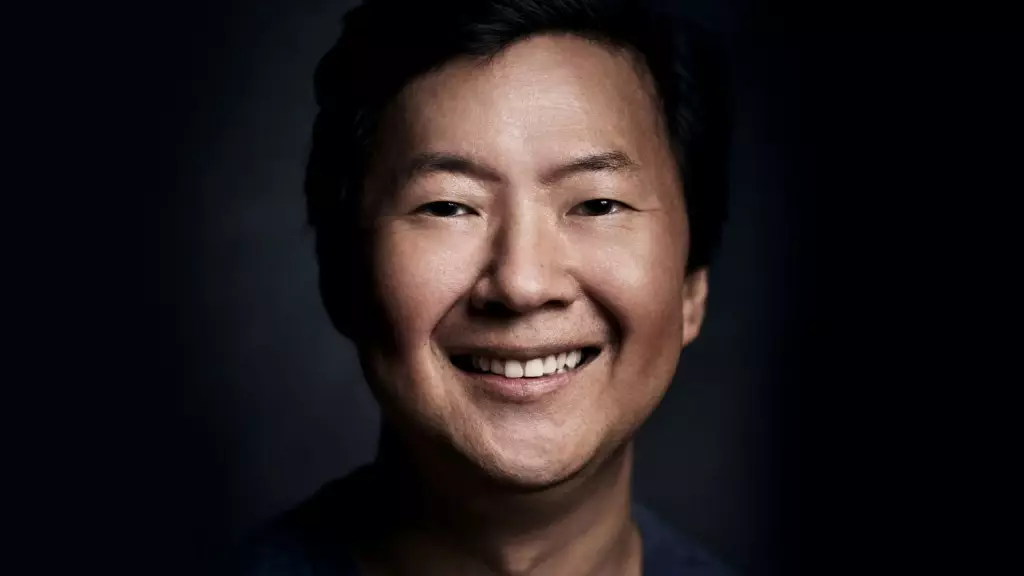Ken Jeong, long celebrated for his comedic genius in blockbuster movies like The Hangover and beloved TV series such as Community, is embarking on a daring new career path that pushes his artistic boundaries. His upcoming role in the gritty crime-thriller 52nd State signifies not just a career shift but a bold statement about versatility and the power of genuine acting talent. Historically pigeonholed as a comedian, Jeong’s decision to dive into a suspenseful, morally complex character demonstrates a desire to challenge himself and defy audience expectations. Such a transition underscores an essential truth in the acting world: true talent flourishes when actors refuse to be confined by labels.
Jeong’s portrayal of U.S. Postal Inspector Jay Hailey reveals a layered, emotionally nuanced character caught amidst a web of deception. It’s a departure from his usual humorous persona, requiring a profound internal transformation. This shift suggests that Jeong recognizes the importance of evolving as an artist and embracing roles that demand a broader emotional palette. His willingness to explore darker, more complex roles aligns with the careers of comedic legends like Robin Williams and Steve Carell, who successfully transitioned into serious roles later in their careers. Jeong’s leap into this genre exemplifies aspiration and confidence, emphasizing that comedic talent does not preclude dramatic prowess.
Behind the scenes: a production driven by visionary leadership
The film 52nd State is being helmed by Todd S. Yellin, a former Netflix VP, which hints at a project that is both innovative and ambitious. The film’s production team, including notable producers like Fernando Ferro and Jay Van Hoy, brings a high level of filmmaking expertise, promising a compelling narrative that extends beyond standard crime thrillers. The involvement of Reed Hastings as executive producer not only underscores Netflix’s investment but also suggests a high-quality, potentially groundbreaking project. This backing signals Netflix’s ongoing commitment to diverse storytelling and their interest in showcasing versatile talent such as Jeong.
Filmed in Bogotá, Colombia, the movie taps into a vibrant, international setting that enhances its authenticity and thematic depth. The plot, inspired by real events, explores a tech-driven scam targeting the elderly, exposing societal vulnerabilities and the global nature of modern crime. Such themes resonate deeply in today’s digital age, demanding a nuanced performance from Jeong—one that unpacks both the technical intricacies of cybercrime and the personal stakes involved. This contextual depth elevates the film from mere entertainment to a commentary on contemporary issues, a challenge that Jeong clearly relishes.
Personal growth and professional evolution in Jeong’s own words
Jeong’s enthusiasm for this role comes across as authentic and heartfelt. He views the project as a meaningful step in his career, a chance to grow beyond his established comedic framework. His statement about pushing his boundaries indicates a self-awareness and desire to avoid stagnation—qualities that distinguish truly dedicated actors. His collaboration with director Yellin, who praises Jeong’s empathetic and intelligent approach, further signals a fulfilling artistic partnership rooted in mutual respect. Jeong’s acknowledgment of the opportunity as a stepping stone reflects a mature understanding that genuine artistry often entails taking risks and embracing new challenges.
His involvement in projects like the upcoming Christmas comedy with Arnold Schwarzenegger and hosting the game show 99 to Beat demonstrates a strategic effort to diversify his portfolio. These endeavors ensure that Jeong remains relevant across multiple entertainment platforms while pursuing roles that offer artistic fulfillment. His stance of continually seeking growth exemplifies a rare humility and curiosity, qualities that can lead to meaningful, lasting change in a career that initially appeared mapped out within a narrow comedic landscape.
The larger implication: redefining success in Hollywood
Jeong’s career trajectory challenges conventional Hollywood wisdom that actors of his comedic stature must remain within certain archetypes. His shift signifies a broader movement within the entertainment industry—one that values authentic, multidimensional storytelling and the actors who bring it to life. It also invites audiences to reconsider their perceptions of talent and the possibilities of artistic reinvention. When a comedian-turned-actor like Jeong embraces roles that demand vulnerability and intensity, it sends a powerful message: success is not static, and true mastery involves continual evolution.
This move could inspire other comedians and performers contemplating a similar transition, encouraging them to trust their craft and take bold risks. More critically, it emphasizes that actors are not confined by the genres in which they initially gained fame. In embracing such a transformation, Jeong not only expands his own artistic horizons but also elevates the standards for what audiences can expect from performers with comedic roots. Such a progression affirms that genuine artistry is rooted in authenticity, courage, and an unyielding commitment to growth.

